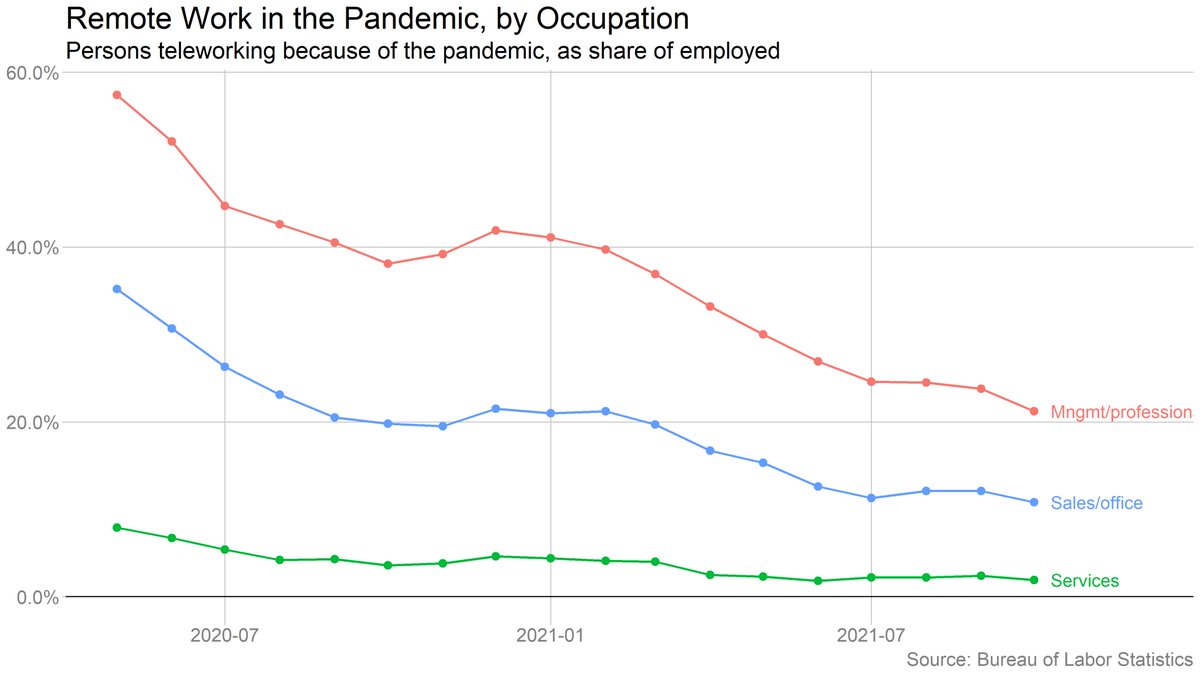
The recent spike in inflation has brought an old idea back from the dead: price controls.
My story with @jeannasmialek:
nytimes.com/2022/01/13/bus…
My story with @jeannasmialek:
nytimes.com/2022/01/13/bus…
A refresher: In 1971, with inflation running around 6% a year, Richard Nixon imposed a 90-day freeze on most prices and wages. Price controls, in various and ever-shifting forms, stayed in place until 1974.
It worked! Briefly. Inflation cooled, but then returned with a vengeance as soon as the controls were eased. And they resulted in shortages and other disruptions. The overwhelming consensus among economists ever since is that they were a failure.
But now some progressive economists are questioning that orthodoxy, arguing that narrower, more targeted price controls could make sense as a way of dealing with pandemic-induced supply disruptions.
A few points these people make:
- The 1970s were hardly a clean test of price controls. It was also the period of oil shocks, the end of Bretton-Woods, etc.
- Also, the Nixon controls were very broad and complex, not targeted at specific areas of concern.
- The 1970s were hardly a clean test of price controls. It was also the period of oil shocks, the end of Bretton-Woods, etc.
- Also, the Nixon controls were very broad and complex, not targeted at specific areas of concern.
- The 1970s might not be the best parallel anyway. They point to the period after WWII, when pent-up demand ran up against postwar supply constraints and led to rapid inflation. Many economists at the time argued for a gradual pullback in wartime price controls.
- Sure, price controls look bad in an Econ 101 model. But research in recent decades has uncovered lots of examples (the minimum wage, prominently) where the real world doesn't work the way simple econ models predict. Why not revisit price controls too?
The revisionists emphasize that they are NOT calling for a return of Nixon-style, broad-based price controls. They aren't questioning the basic logic of supply and demand. What they do question is the ability of supply to respond quickly.
So far, most economists are not swayed. Here's a recent IGM panel in which most people either don't think price controls could control inflation, or think the costs outweigh the benefits:
igmchicago.org/surveys/inflat…
igmchicago.org/surveys/inflat…
Critics (and again, there are many) argue in part that if you're going to limit prices, you also need to limit quantities (i.e. rationing) and wages. Otherwise you just end up with shortages. Notably, no one seems to be suggesting rationing or wage caps right now.
So far, no one with any real power is embracing price controls. The White House says they're not under consideration. But leading Dems *are* talking a lot about corporate profits and industry consolidation as contributors to inflation.
These arguments, on both sides, are much more nuanced than I'm outlining here. More in our story:
nytimes.com/2022/01/13/bus…
nytimes.com/2022/01/13/bus…
• • •
Missing some Tweet in this thread? You can try to
force a refresh









